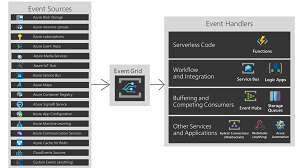News
New Azure Kubernetes and Event Grid Integrations Unveiled at Microsoft Inspire
This week's Microsoft Inspire 2021 event focuses on the company's partner ecosystem, but it also provides cloud developers with news about the Event Grid for serverless computing and Azure Kubernetes Service.
Even with the focus on partners, CEO Satya Nadella shouted out to the developer community during his keynote address on Wednesday, July 14, claiming the company has seen many new developers coming to its platforms.
"And today I want to specifically talk about developers and their expanding role in our work," Nadella said. "We're experiencing a surge of developers across every industry and geography. In fact, the number of developers at non-tech companies is growing faster than at tech companies. Students, teachers, data analysts and scientists have all seen rapid growth on GitHub over the past year. As every organization looks to build its own digital capability, they need to modernize existing apps build new apps and have a standard way of doing both. And we know that application development, increasingly, it's not just about broad developers but includes domain experts designers marketeers salespeople customer service."
However, even with those words and several other developer-related references made by Nadella, Microsoft didn't reveal any major new development features during day 1 of Inspire. Leading the scant developer news that was announced are new integrations for Event Grid, which powers Azure serverless apps, wherein code blocks are typically executed when triggered by different types of events. It manages routing of all events from any source to any destination.
 [Click on image for larger view.] Event Grid (source: Microsoft).
[Click on image for larger view.] Event Grid (source: Microsoft).
Two new integrations were announced in preview: with Azure API Management and Azure Kubernetes Service (AKS).
"Event Grid is a single service for managing the routing of events from source to destination, with near real-time notifications," Microsoft said. "It allows users to easily build apps with event-based architectures by subscribing to events and then taking action when the subscribed event is received. To automate AKS operations, customers can now subscribe to the following events:
- AKS event for a new Kubernetes version upgrade availability.
- AKS event for a new node image version upgrade availability.
Developers can simply select the Azure resource to subscribe to, code an event handler or WebHook endpoint to initiate an action when the subscribed event occurs.
Meanwhile, the Azure API Management integration with Azure Event Grid helps customers configure API Management to publish events to Event Grid when a new user or new subscription is created on an API Management resource.
Yet more Kubernetes functionality announced in preview concerns new "smart defaults" designed to simplify and expedite configuration.
"Smart defaults are a set of scenario-specific cluster configurations that can be applied in a single click to help customers avoid common pitfalls in setup and operations and get going quickly," Microsoft said. "This feature also saves customers time that would be spent navigating through documentation and testing different settings."
Customers can select from these scenarios:
- Dev/Test
- Cost-optimized
- Batch processing
- Hardened cluster access
Users can also quickly apply preset configurations for node pool size, auto-scaling, availability zones, Azure Monitor and Azure Policy that are specific to the above scenarios.
Microsoft Inspire 2021 started today (June 14) and concludes tomorrow.
About the Author
David Ramel is an editor and writer at Converge 360.